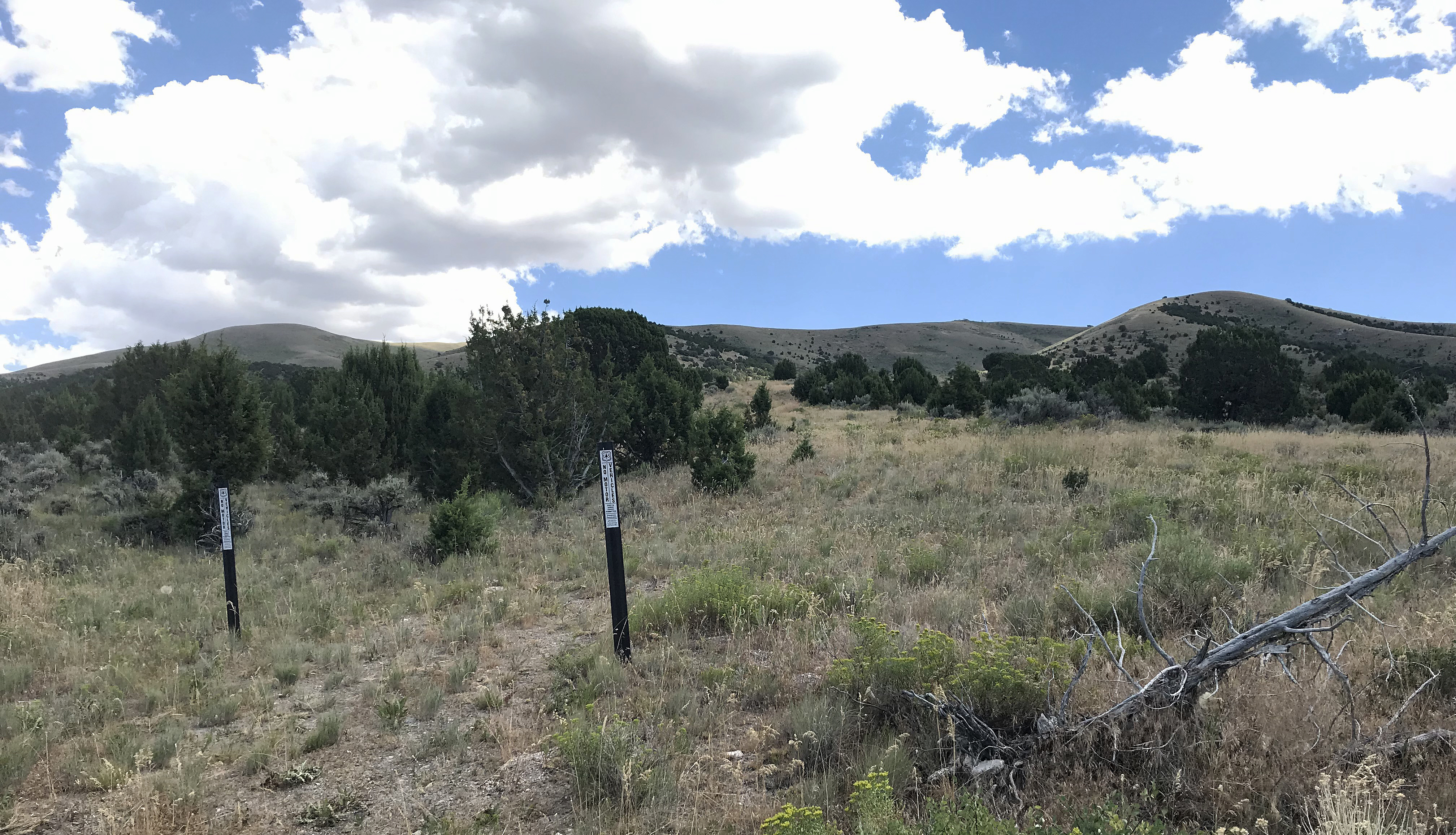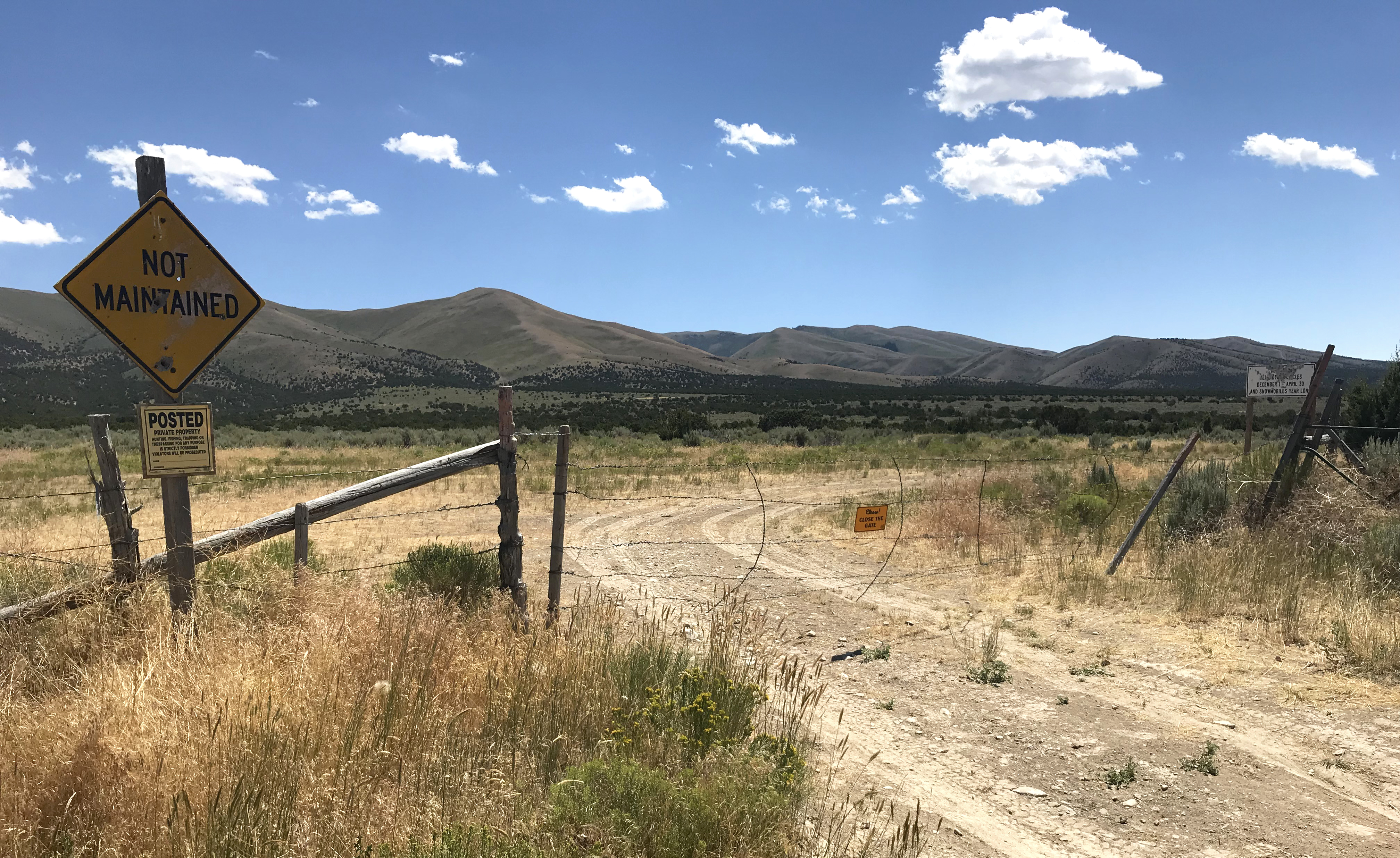Often, big game hunts in Idaho require hunters to cross private land to reach their hunt unit that is usually on publicly-owned land. Many private landowners allow the public to cross their land, because they are often hunters themselves and support providing access to others so they can hunt on public lands and pursue the wildlife that lives there.
Responsible hunting ethics on private land
To ensure that private landowners and their land are respected, ultimately resulting in private lands remaining open to hunting access, hunters are reminded to:
- Always ask for permission to hunt on private land, and, if you’re unsure if it is acceptable to cross private land to access public land, ask first! Idaho trespass law specifies that, “no person shall enter or remain on private land to shoot any weapon or hunt, fish, trap or retrieve game without written permission or other lawful permission.”
- If access is granted by the landowner, hunters should stay on designated roads and trails.

Unauthorized trail signed as closed by the Sawtooth National Forest in the Black Pine unit.
- If you must open a closed gate, legally, the gate must be closed once you’ve passed through it. Leaving a gate open can allow livestock to escape into areas where they don’t belong.

- Never cut a fence or remove fence rails or wires. Destroying or damaging improvements on private land is illegal and is punishable by law.
- Know your target. Many landowners are running livestock both on private and public lands. Never shoot unless you are absolutely sure of your target and what lies beyond.
Trespassing law in Idaho
- Never trespass on private lands. It is the responsibility of the hunter to know Idaho’s trespass law. A person who commits criminal trespass could be found guilty of a misdemeanor.
- Private land is typically identified by a place of residence, the land is cultivated, or it’s fenced or enclosed in a manner that reflects a private boundary.
- If private property adjoins or is contained within public lands, the fence line adjacent to public land is to be posted with conspicuous "no trespassing" signs or bright orange or fluorescent paint at the corners of the fence adjoining public land and at all navigable streams, roads, gates and rights-of-way entering the private land from the public land. It must be posted in a manner that a reasonable person would be put on notice that it is private land.
- If private property is unfenced and uncultivated it is to be posted with conspicuous "no trespassing" signs or bright orange or fluorescent paint at all property corners and boundaries where the property intersects navigable streams, roads, gates and rights-of-way entering the land, and is posted in a manner that a reasonable person would be put on notice that it is private land.
Partnering with private landowners – Access Yes!
Fish and Game partners with private landowners under the Access Yes! program to improve access to private land, or when hunters need to cross private land to access public lands. Properties that are incorporated into the Access Yes! program can be found on the department website. Hunters need to be aware of any landowner requirements or restrictions when going onto private land, which can also be found on the Access Yes! webpages.
By acting responsibly and respecting private property, hunters will help to ensure access to private property today, and into the future.

